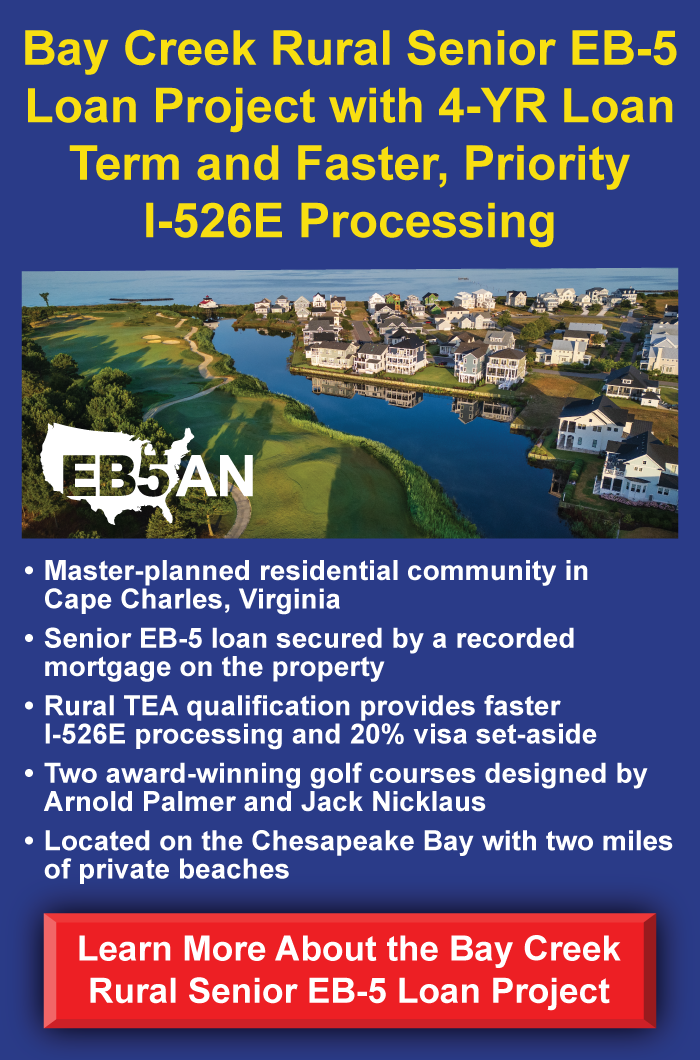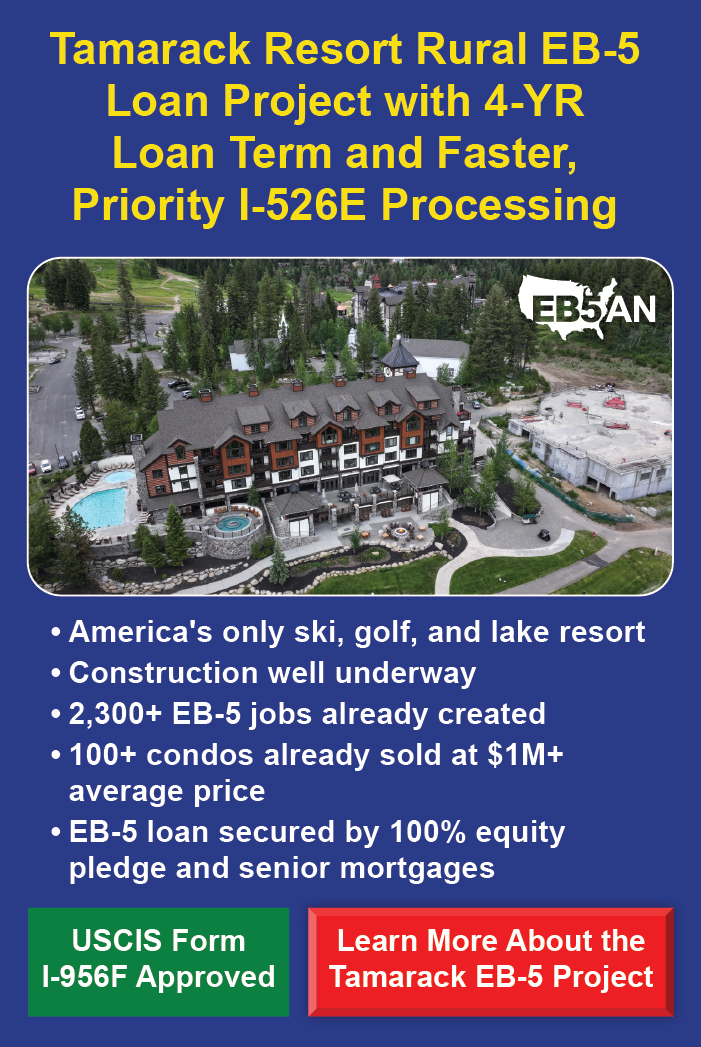What must EB-5 investors know about the dangers of dual representation?
Immigration Attorneys and the EB 5 Visa Program
What is the Role of an EB-5 Immigration Attorney?
The Importance of Retaining Separate Representation
Risk Factors for EB-5 Projects
Conflicts of Interest and Dual Representation
The Dangers of Dual Representation
Immigration Attorneys and the EB 5 Visa Program
The EB-5 Immigrant Investor Program allows foreign nationals to pursue U.S. residency in exchange for investing in a U.S. new commercial enterprise. EB-5 investments must also result in job creation.
However, navigating the rules and regulations of the EB 5 visa program can be complex. Investors must take care to remain compliant with United States Citizenship and Immigration Services regulations throughout the entire immigration process of becoming a permanent resident; otherwise, they risk jeopardizing their eligibility for an EB 5 visa.
Therefore, retaining an immigration attorney is crucial for EB-5 foreign investors. Immigration attorneys can provide valuable advice and reduce the risk of a failed EB-5 project.
At the same time, many EB-5 foreign investors choose to invest through regional centers, licensed entities that manage EB-5 funding and distribute it to each commercial enterprise they sponsor. Regional centers also retain legal representation. If the legal representative of an EB-5 investor is the same as that of the regional center sponsor—that is, dual representation for both parties—conflicts of interest are likely to arise. In this article, we explain the role of immigration attorneys in the EB-5 industry and the importance of retaining separate representation during the EB-5 process of becoming a permanent resident.
What is the Role of an EB-5 Immigration Attorney?
Immigration attorneys with experience in the EB-5 industry can advise investors on relevant immigration issues and compliance with program regulations. Moreover, EB-5 immigration attorneys can help investors conduct due diligence on an EB-5 new commercial enterprise or regional center to gauge the level of immigration risk involved. However, except for matters related to immigration issues and program compliance, an EB5 immigration lawyer should not advise on the financial or business aspects of an EB-5 project. Separate financial counsel should be retained for those areas.
What Services Do EB-5 Attorneys Provide?
As mentioned above, the EB-5 investment process can be difficult to navigate on one’s own. Moreover, the petition filings that investors submit along the way require a wide variety of documentation. EB-5 immigration lawyers play an integral role in making sure petitions meet all of the applicable criteria and result in a favorable immigration decision from United States Citizenship and Immigration Services.
EB-5 immigration attorneys can provide the following services to investors.
- Assist investors in evaluating how much capital they can afford and which new commercial enterprise is ideal for their situation.
- Ensure that fees are paid in full and on time.
- Ensure that the EB 5 visa applications are filed to the appropriate entities.
- Keep all documents complete and transparent.
- Compile adequate source-of-funds documentation.
- Preparation and filing of the I-526 petition on behalf of the investor.
- Guidance through the adjustment of status process, if applicable.
- Preparation and filing of the I-829 petition to remove conditions from their EB 5 visa.
- Coordinate with other EB5 professionals such as economists, securities law attorneys, and business planners to evaluate the new commercial enterprise’s progress.
- Address problems and resubmit forms if one of the investor’s petitions is denied.
- Determining whether the EB-5 business is in a targeted employment area. Targeted employment areas are either rural or possess high unemployment, making them prime targets for job creation. An EB-5 enterprise in a targeted employment area can accept a reduced investment threshold of only $800,000.
Immigration attorneys also provide valuable services to regional centers and new commercial enterprise developers. These include the following.
- Assistance with obtaining regional center designation from United States Citizenship and Immigration Services.
- Ensuring compliance with United States Citizenship and Immigration Services reporting requirements.
- Structuring projects to qualify for EB5 financing.
The Importance of Retaining Separate Representation
It is highly recommended that EB-5 investors and regional centers retain separate immigration counsel to protect the interests of both parties. Dual representation creates an opportunity for legal issues and serious risk for the EB5 attorneys involved. The Securities and Exchange Commission (SEC) has strict regulations that involve standards of professional conduct for lawyers, including those in the EB-5 investment field.
Participants in the EB-5 Immigrant Investor Program—including new commercial enterprise owners and regional centers—who fail to meet SEC and EB-5 regulations can face substantial fines or debarment. Moreover, the SEC can issue civil penalties and cease-and-desist orders.
What is the Securities and Exchange Commission?
Created as a response to the 1929 stock market crash and subsequent Great Depression, the SEC is responsible for enforcing U.S. securities laws and promoting a trustworthy financial market. It accomplishes these goals by protecting investors from fraud by investigating corporate misconduct; ensuring that securities markets operate with fairness and efficiency; and publishing corporate information to enable the public to make informed decisions regarding their domestic capital investment.
Any form of misrepresentation is strictly prohibited for securities officers engaging with investors, which includes providing false information or omitting important material. Misrepresentation can occur in the EB 5 visa program when new commercial enterprise owners fail to properly inform investors about the investment terms.
Risk Factors for EB-5 Projects
Information Disclosure
Before investing, an EB 5 visa applicant and their immigration counsel should evaluate each potential EB-5 project, including its capital structure, regional center sponsor, and projected job creation. If there is dual representation between the immigrant investor and the regional center, this can create a serious conflict with the EB5 lawyer’s competing fiduciary duties. The attorney must accurately disclose the new commercial enterprise’s weaknesses to the investor, as it is in their best interest to choose a new commercial enterprise likely to succeed. However, this would contradict the EB5 immigration attorney’s fiduciary duty to the regional center.
Investment Timeline
Another complication that can arise from dual representation involves the timelines of the release of EB-5 funds from escrow.
A regional center’s main goal is to obtain funding. As such, it is in a regional center’s best interest to release funds from escrow into the new commercial enterprise as soon as possible. However, a foreign investor often prefers their funds to remain in escrow until they submit Form I-526 to United States Citizenship and Immigration Services. Such an arrangement reduces the investor’s risk.
Misuse of Funds
Another major complication involves any litigation between the immigrant investor and the regional center if the regional center misuses the investor’s funds. The American Bar Association (ABA) specifically states that dual representation is prohibited in legal action regarding the misuse of funds.
Conflicts of Interest and Dual Representation
Issues can arise from dual representation even if both parties otherwise remain compliant with SEC and EB-5 regulations, and a conflict of interest could lead to severe consequences for a foreign investor. In the event of a non-waivable conflict, an EB-5 attorney must withdraw from representing the immigrant investor and the regional center. If new legal representation is not found promptly for either party, the attorney may be liable for damages. Furthermore, if dual representation was improperly engaged in to begin with, the attorney may face malpractice issues, lawsuits, sanctions by the state bar, and reputational damage.
Conflicts of interest and ensuing issues are more likely to occur the longer dual representation lasts. In the EB 5 visa program, the immigration process typically takes several years to complete, with high-demand countries seeing even longer wait times. As such, dual representation can considerably hinder the EB5 investment process and jeopardize an investor’s time, money, and immigration success.
The Dangers of Dual Representation
The ABA prohibits dual representation in cases where it limits an EB-5 attorney’s ability to effectively represent the best interests of each party. The only exceptions made to this are when both parties have similar or identical interests. However, this is not the case with individual investors and regional centers. Retaining separate representation is key to ensuring reduced risk for all parties, especially investors.
As a leader in the EB 5 visa investment field, EB-5 Affiliate Network (EB5AN) has helped thousands of investors connect with experienced EB5 immigration attorneys and begin the journey toward permanent resident status. Prospective investors interested in the program can take the next step by booking a call with EB5AN to learn more.











